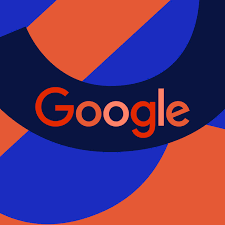Why AI Can't Write Jokes: Google DeepMind's Study Revealed
why AI struggles with comedy in Google DeepMind's study, revealing AI-generated jokes as bland and lacking nuance.


Comedy is a complex art form, deeply rooted in nuances and subjectivity. Google DeepMind's recent study aimed to explore whether artificial intelligence could master this intricate craft. The findings, however, were a resounding affirmation of AI's shortcomings in generating genuinely funny content.
In August 2023, researchers conducted workshops at the Edinburgh Festival Fringe and online, involving twenty professional comedians and performers. These sessions focused on evaluating the performance of popular large language models (LLMs) such as ChatGPT and Bard in a comedy writing context. Over three hours, comedians used AI to create standup routines and then critically assessed the outputs using a human-computer interaction questionnaire based on the Creativity Support Index (CSI).
The comedians' feedback was overwhelmingly negative. One participant described the AI-generated jokes as “the most bland, boring thing—I stopped reading it. It was so bad.” Another compared it to a “vomit draft” requiring significant human intervention to be remotely funny. The study revealed that while LLMs could generate basic outlines and fragments of routines, they lacked the human touch necessary for humor.
Why AI Fails at Comedy
The primary issue is that comedy is inherently human. It thrives on personal experience, cultural context, and emotional nuance—elements that AI cannot replicate. The study participants noted that AI-generated jokes often mirrored "cruise ship comedy material from the 1950s, but a bit less racist," highlighting the generic and outdated nature of the content.
AI's inability to understand sarcasm, dark humor, and irony further exacerbates its limitations. One comedian shared that the AI avoided creating dark humor, mistaking the content for suicidal intent. This disconnect underscores AI's lack of emotional intelligence and context awareness, which are crucial for crafting effective comedy.
Ethical Concerns and Cultural Bias
Beyond technical limitations, the study also raised ethical concerns about AI in comedy. The researchers pointed out that LLMs, driven by global cultural value alignment, tend to reinforce hegemonic viewpoints, effectively censoring minority perspectives. This inherent bias limits the diversity and richness of comedic content that AI can produce.
The Human Element in Comedy
The study concluded that AI's limitations extend beyond generating content. Comedy relies heavily on perspective, point of view, and lived experiences—qualities that are uniquely human. As one comedian put it, humans add "nuance and emotion and subtlety" to their material, drawing from personal memories and cultural contexts to create relatable and engaging performances.
Future of AI in Creative Fields
Despite advances in AI, the technology's current capabilities suggest that comedians' jobs are safe, at least for now. As Thomas Winters, one of the researchers, explained, humor's complexity makes it an "AI-complete problem," requiring deep insight into human cognition and world knowledge. While AI may assist in structuring content, the essence of comedy remains a human domain.
OpenAI CTO Mira Murati has suggested that some creative jobs might be at risk of automation. However, given the findings of this study, it's clear that comedy—steeped in personal and cultural nuances—will continue to be a uniquely human craft for the foreseeable future.
Google DeepMind's study highlights the significant gap between AI's capabilities and the intricate art of comedy. While AI can assist in various creative processes, the essence of humor remains deeply rooted in human experience and emotion, ensuring that professional comedians retain their unique role in society.